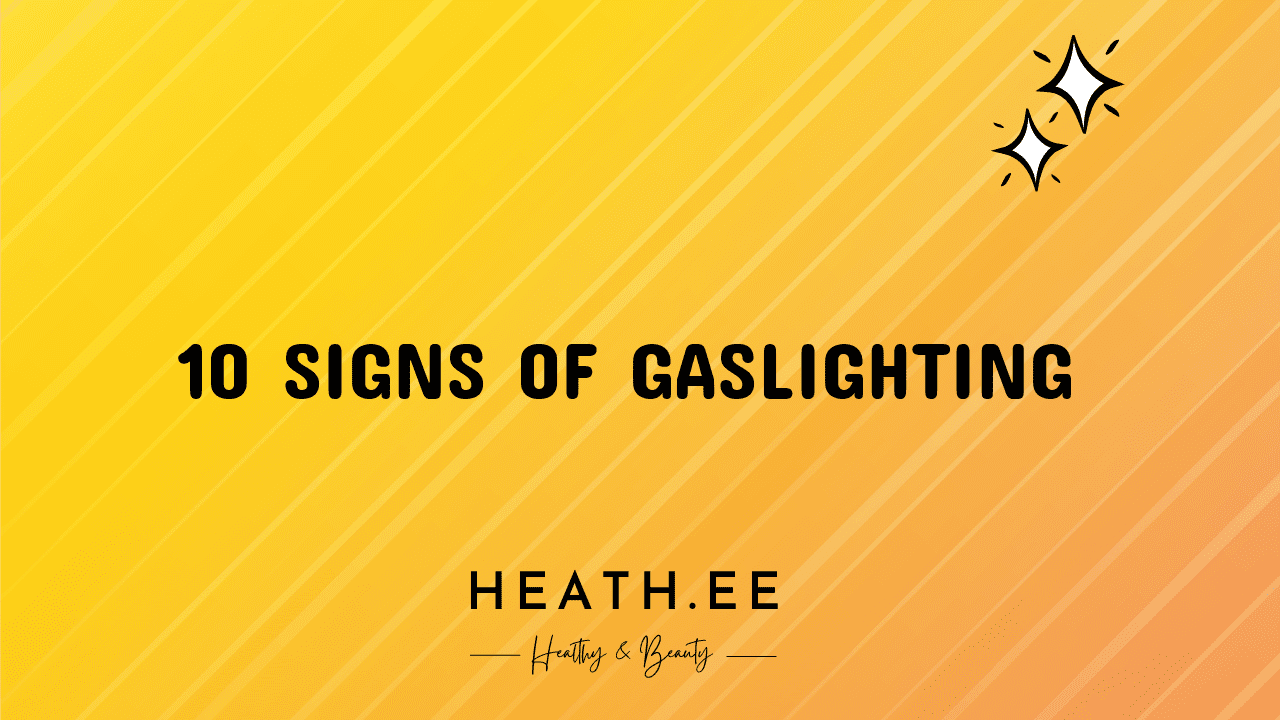Gaslighting is a form of psychological abuse that can be difficult to recognize, but it is important to be aware of its signs and effects so you can protect yourself from it. Gaslighting is a manipulative tactic used by an abuser to make their victim question their own reality and sanity. This type of abuse is often used to gain control in a relationship, and it can have damaging consequences for the victim. In this article, we will discuss 10 signs of gaslighting and how to recognize and overcome it.
What is Gaslighting?
Gaslighting is a form of psychological abuse in which an abuser deliberately manipulates their victim in order to gain control over them. The abuser may use a variety of tactics to do this, such as lying, denying, or withholding information. They may also use verbal and emotional abuse to make their victim doubt their own reality and sanity.
Gaslighting is a serious form of abuse and can have a profound impact on the victim’s mental health. It can lead to feelings of confusion, anxiety, depression, and low self-esteem. It is important to be aware of the signs of gaslighting in order to protect yourself from it.

10 Signs of Gaslighting
-
Manipulative behavior: Gaslighters will often use manipulative tactics to gain control over their victim. They may use guilt-tripping, flattery, or other methods to make their victim feel obligated to do what they want.
-
Lying: Gaslighters will often lie or deny the truth in order to make their victim doubt their own reality. They may also use false information to make their victim feel confused or uncertain.
-
Withholding information: Gaslighters may withhold important information from their victim in order to make them feel powerless or out of control.
-
Isolating their victim: Gaslighters may try to isolate their victim from friends and family in order to gain more control over them.
-
Making the victim feel guilty: Gaslighters may try to make their victim feel guilty for things that are not their fault in order to make them more compliant.
-
Creating confusion: Gaslighters may use confusing language or contradictory statements to make their victim doubt their own reality.
-
Playing the victim: Gaslighters may try to make their victim feel sorry for them in order to gain sympathy.
-
Using intimidation: Gaslighters may use threats or intimidation to make their victim feel scared or powerless.
-
Projecting blame: Gaslighters may try to make their victim feel like they are to blame for their own suffering.
-
Gaslighting in relationships: Gaslighting can be especially damaging in romantic relationships. An abuser may use gaslighting to gain control over their partner, which can lead to feelings of confusion, anxiety, and low self-esteem.
How to Recognize and Overcome Gaslighting
If you think you are being gaslighted, it is important to recognize the signs and take action to protect yourself. Here are some tips on how to recognize and overcome gaslighting:
-
Trust your instincts: If something feels wrong or off, it is important to trust your instincts and take action.
-
Set boundaries: It is important to set boundaries and communicate your needs clearly.
-
Seek support: Reach out to friends and family for support and advice.
-
Seek professional help: If you are in an abusive relationship, it is important to seek professional help from a therapist or counselor.
-
Take care of yourself: Make sure to take care of your physical and mental health by engaging in self-care activities such as yoga, meditation, and journaling.
-
Know your rights: If you are in an abusive relationship, it is important to know your rights and how to protect yourself.
-
Take action: If you are in an abusive relationship, it is important to take action to protect yourself and seek help.

Conclusion
Gaslighting is a serious form of psychological abuse that can have a profound impact on the victim’s mental health. It is important to be aware of the signs of gaslighting in order to protect yourself from it. If you think you are being gaslighted, it is important to recognize the signs and take action to protect yourself. Seek professional help if you are in an abusive relationship, and make sure to take care of your physical and mental health.



